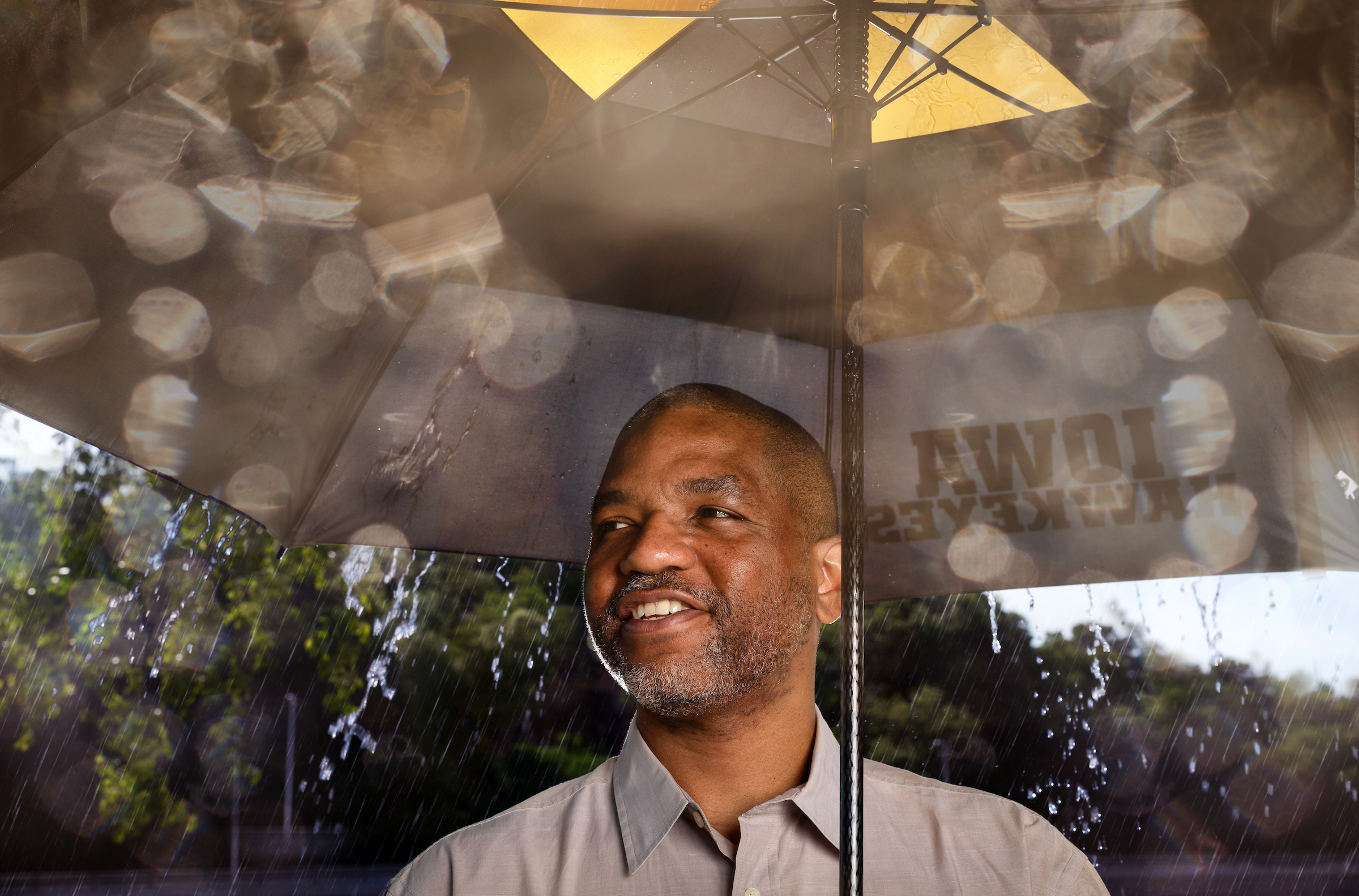College of Liberal Arts & Sciences
Dr. Eric Tate: "Those at the margins of power in our society consistently bear the highest impacts from environmental problems"

The University of Iowa Office of Sustainability is publishing a faculty spotlight series. This spotlight features Professor Eric Tate in the Department of Geographical and Sustainability Sciences.
Dr. Eric Tate received his PhD from the University of South Carolina and is currently a geographer at the University of Iowa who teaches about environmental challenges caused by interactions of natural and societal processes. His courses include Contemporary Environmental Issues, Water Resources, Hazards and Society, and Environmental Justice. In addition to teaching, he conducts research about the impacts of floods on people, buildings, and agriculture.
Dr. Tate also serves on the Climate Action Commission for Iowa City and the Resilient America Roundtable. At the university, he is a faculty affiliate for the Public Policy Center and the Center for Global and Environmental Research. His research focuses on the unequal impacts of natural disasters on different communities. Professor Tate appreciates sustainability because it “directs us to address our biggest environmental challenges in a holistic way”.
COVID-19 has reinforced Dr. Tate’s perspective on the negative effects of power imbalances on vulnerable populations. He recognizes that people at the “margins of power in our society consistently bear the highest impacts from environmental problems. In the case of COVID-19, it’s Native Americans, African Americans, low-wage workers, prisoners, and the elderly in long-term care facilities who face the brunt of exposure and infection. Unfortunately, these groups are also often the most impacted when it comes to floods and other environmental and societal hazards.”
Professor Tate envisions an ideal Earth as one in which we value social equity as much as economic productivity. He notes that, “There have been great strides in integrating sustainability into policies and actions of people and organizations. But in too many cases, the pace of our change is too slow and cosmetic. This is especially the case for climate change, but also for pollution, biodiversity loss, and wealth inequality. We will have to change faster and in greater degree if we are to stem significant long-term impacts.” He believes we can create a more sustainable, equitable world by volunteering, becoming more informed, being willing to consider viewpoints outside of our own, and having humility.
To contact Dr. Eric Tate, email him at eric-tate@uiowa.edu.